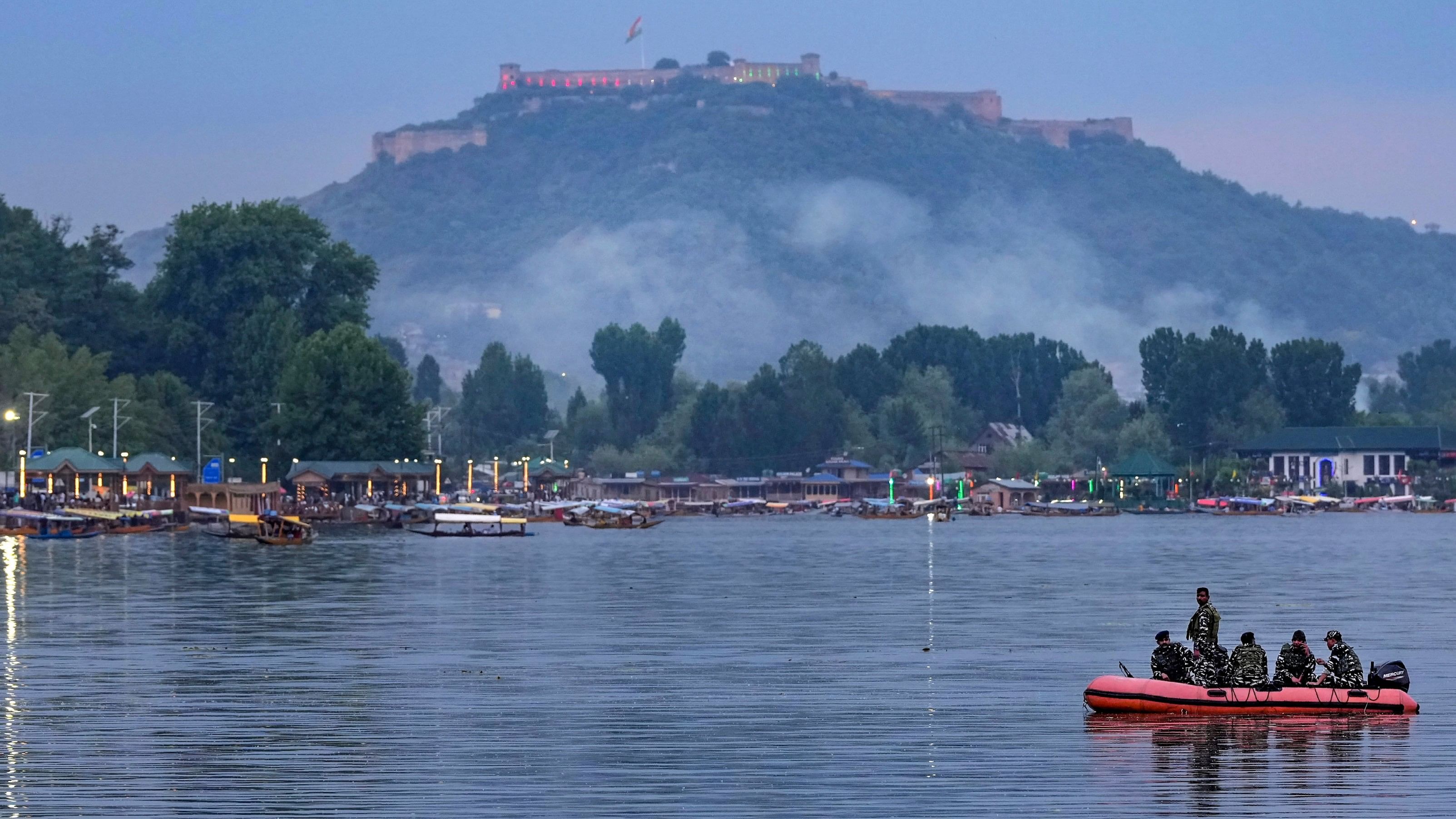
Security personnel patrol on boat at the Dal Lake as house boats crowd the shore.
PTI
Srinagar: Kashmir, renowned for its stunning natural beauty, has always been a popular tourist destination. Since the abrogation of Article 370, the region has experienced a significant surge in visitors. However, this influx, coupled with unregulated tourism, is straining its fragile ecosystem.
Tourism, a key component of Kashmir's economy, has revitalized the hospitality and service sectors. Yet, this boom is putting immense pressure on natural resources, resulting in overproduction of sewage, litter, loss of animal habitats, deforestation, and various forms of pollution.
Heaps of plastic waste are now common in popular tourist spots like Gulmarg, Pahalgam, Sonamarg, Yusmarg, and Doodhpathri. Pilgrims visiting the Amarnath cave shrine are littering the high-altitude mountains, where waste decomposition is slow due to freezing temperatures.
The cave is near the Kolahoi glacier, which feeds the Lidder and Sindh rivulets, tributaries of the Jhelum River, Kashmir’s lifeline.
Rapid tourism growth has also led to numerous infrastructure projects, often at the expense of the environment and without adequate consultation with local communities. While these developments boost the economy, they risk damaging the very assets that make Kashmir unique.
Experts advocate for sustainable tourism to protect the environment and enhance Kashmir’s appeal. “A comprehensive plan balancing the needs of the environment, the community, and tourists is essential," a researcher at the University of Kashmir told DH.
He recommended eco-friendly accommodations, effective waste management systems, and educational programs on conservation for both locals and visitors.
The surge in tourist numbers has increased pollution in the region's lakes and rivers, threatening the delicate alpine ecosystem, local biodiversity, and natural habitats. Abdul Majeed, a hotelier at Gulmarg ski resort, warned, “We cannot continue like this. If we do not act now, our paradise will be lost forever. We must embrace sustainable tourism.”
J&K Lieutenant Governor Manoj Sinha recently stated the administration is promoting sustainable tourism with the aim of ensuring a zero-waste during the upcoming Amarnathji Yatra.
“J&K is leading the way in promoting sustainable tourism. For this holy yatra, we have implemented solutions through a fusion of technology and human resources,” he said. “We must focus on environmentally friendly waste disposal, piped water and power connections, lighting, and necessary facilities at all toilets.”